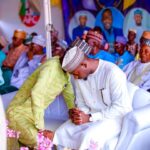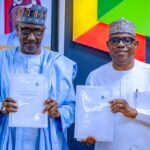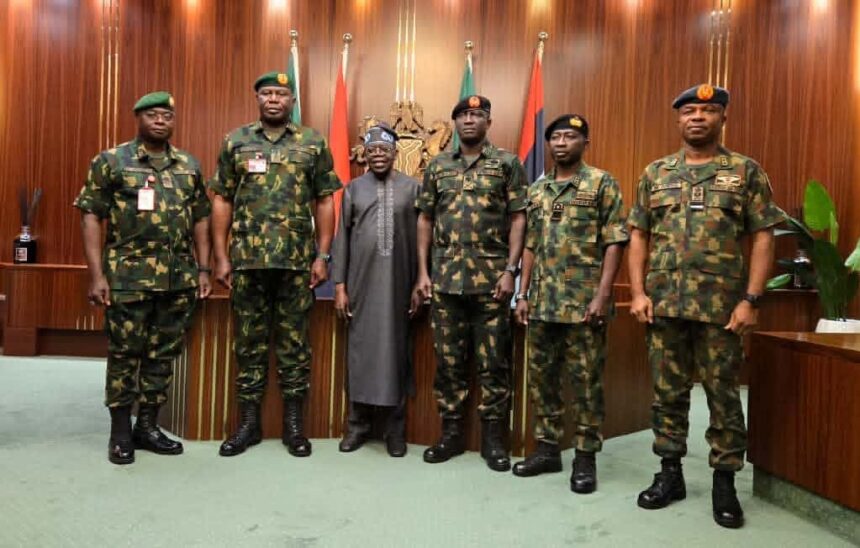As the political drums begin to beat once again with 2027 elections on the distant horizon, a familiar chorus rises from the Oke-Ogun region of Oyo State: “Oke-Ogun lo kan” – It is Oke-Ogun’s turn. This refrain, as predictable as the seasons, will soon fill community halls, radio airwaves, and political gatherings across our ten local government areas. But if history is our guide, this passionate advocacy will gradually fade as election day approaches, replaced by the same political calculations that have repeatedly denied our region its rightful place in the governance of Oyo State.
For decades, we have witnessed this cycle of hope and disappointment. Our elites, traditional rulers, and community leaders initially champion the cause for an Oke-Ogun governor, only to later abandon this principled stance in favor of “pragmatic politics” – supporting candidates from other regions, particularly Ibadan. This pattern has relegated Oke-Ogun to perpetual political marginalization despite our significant contributions to the state’s economy and development.
The time has come to confront this uncomfortable truth: our political marginalization is not merely imposed from outside but also self-inflicted. The crocodile tears shed over Oke-Ogun’s exclusion from the governorship must give way to genuine commitment and strategic action.
THE PARADOX OF ABUNDANCE AND NEGLECT
Oke-Ogun’s story is one of stark contradictions. Our region occupies approximately 60% of Oyo State’s landmass and contributes about 25% of its population. We are home to ten out of the state’s 33 local government areas – a significant political bloc by any measure. Yet, this numerical strength has never translated into proportional political representation.
More striking is our economic contribution. Oke-Ogun is rightfully called the “food basket” of Oyo State, producing the bulk of the state’s agricultural output. Our fertile lands yield abundant yam, cassava, maize, millet, legumes, fruits, and vegetables that feed not just Oyo State but much of southwestern Nigeria. Cash crops including tobacco, cotton, citrus, cashew, and cocoa from our region generate substantial revenue.
Beyond agriculture, our mineral wealth is extraordinary. Marble and dolomite in Igbeti, tourmaline in Komu, tantalite in Sepeteri, gold in Saki, and various other minerals lie within our soil. In fact, the resources of Oke-Ogun rival those of some African nations. Our traditional industries, from the renowned Aso-oke factories of Iseyin to the iron works of Saki, represent cultural and economic treasures.
Tourism potential abounds with the Ado Awaye suspended lake (one of only two in the world), Old Oyo National Park, Ebedi Hill, Asabari Hill, and numerous historical sites. The Ikere Gorge Dam, capable of powering significant industrial development, sits neglected within our borders.
Yet, despite this abundance, Oke-Ogun remains severely underdeveloped. Infrastructure is lacking, with poor road networks, inadequate healthcare facilities, and limited educational institutions. The stark disparity between our economic contributions and the development we receive in return represents a fundamental injustice that demands correction.
THE POLITICAL MARGINALIZATION OF OKE-OGUN
Since Oyo State’s creation in 1976, the governorship has largely been dominated by Ibadan, except for Chief Bola Ige (1979-1983), the first civilian governor from Esa-Oke (then part of Oyo State, now in Osun State), and one from Ogbomoso. Ibadan has produced six civilian governors: Dr. Victor Omololu Olunloyo (1983), Chief Kolapo Ishola (1992-1993), Alhaji Lam Adesina (1999-2003), Senator Rashidi Ladoja (2003-2007), Senator Abiola Ajimobi (2011-2019), and Engineer Seyi Makinde (2019-present), while Ogbomoso has produced one: Otunba Adebayo Alao-Akala (2007-2011).
Meanwhile, Oke-Ogun has never produced a governor despite comprising nearly one-third of the state’s local governments. Our political representation has been limited to deputy governorship positions – Barrister Iyiola Oladokun (1999-2003) and currently Barrister Adebayo Lawal. Even the senator representing Oyo North Senatorial District, which encompasses our entire region, has often been someone not from Oke-Ogun.
This imbalance reflects a deeper structural problem in our political system, where numerical strength in voting power translates directly into political dominance. Ibadan, with over 50% of the state’s voting power, has leveraged this advantage to maintain its grip on the governorship. The “winner-takes-all” nature of our politics further marginalizes regions like Oke-Ogun, regardless of their economic contributions or legitimate aspirations for representation.
BEYOND PARTY LOYALTY: THE NEED FOR REGIONAL SOLIDARITY
A critical factor in our continued marginalization is the prioritization of party loyalty over regional interests. Our communities remain deeply divided along party lines, with political affiliations sometimes superseding even family ties. This entrenched partisanship prevents the unified action necessary to advance our collective interests.
As one political commentator recently observed, “Politics in Oke-Ogun appears to be a bi-polar exercise; allegiances are almost immutable, despite the increasingly indistinct ideological differences between the parties.” This observation painfully reflects our reality; we remain trapped in outdated political animosities while other regions have moved forward.
The consequences are severe. When the “Oke-Ogun Lokan” movement emerges during election cycles, it quickly fractures along party lines. Our votes split between competing parties, diluting our electoral strength and rendering our numerical advantage meaningless. Meanwhile, other regions, particularly Ibadan, vote more strategically, consolidating power and securing representation.
This is not to suggest abandoning party affiliations entirely. Rather, we must recognize when regional solidarity should take precedence over party loyalty. When opportunities arise for Oke-Ogun representation, whether through a major party nominating an Oke-Ogun candidate or through strategic coalition-building, we must be prepared to unite across party lines.
TAKING RESPONSIBILITY FOR OUR POLITICAL DESTINY
The path to genuine representation begins with acknowledging our own role in perpetuating marginalization. For too long, we have engaged in what I call “crocodile cry politics” – lamenting our exclusion while failing to take the necessary steps to change our circumstances.
First, we must move beyond rhetoric to strategic action. The “Oke-Ogun lo kan” slogan is meaningless without a coordinated plan to identify, support, and promote viable candidates from our region. This requires early preparation, substantial financial investment, and building alliances beyond our regional boundaries.
Second, we must address our internal divisions. The bitter rivalries and lingering resentments from past elections continue to undermine our collective strength. Community leaders, traditional rulers, and political stakeholders must work to heal these divisions and foster a sense of common purpose that transcends party affiliations.
Third, we must leverage our economic contributions more effectively. Our status as the “food basket” of Oyo State and our mineral wealth should translate into political capital. By highlighting the disconnect between our contributions and the development we receive in return, we can build a compelling case for greater representation.
Fourth, we must develop candidates with appeal beyond Oke-Ogun. Successful gubernatorial aspirants must demonstrate the capacity to govern the entire state effectively, not just represent regional interests. This means investing in leadership development and providing platforms for promising individuals to gain visibility and experience.
Finally, we must engage more actively in party structures at the state level. Political parties remain the primary vehicles for accessing power, and increased representation within party leadership can influence candidate selection and policy priorities.
A CALL TO ACTION
As we approach another election cycle, the choice before us is clear: continue the pattern of division and disappointment or forge a new path toward genuine representation. This is not merely about securing the governorship for an Oke-Ogun native – though that remains an important goal. It is about ensuring that our region receives the attention, resources, and development it deserves based on its contributions to the state.
To my fellow Oke-Ogun citizens, I say: let us move beyond the crocodile tears and take responsibility for our political destiny. Let us build bridges across party lines, develop capable leaders, and present a united front in advocating for our interests. Let us demonstrate that our loyalty to our region and its development transcends temporary political alignments.
To the political elite of Oyo State, I say: recognize that true democracy requires inclusive governance. The continued marginalization of a region that contributes so significantly to the state’s economy undermines the principles of equity and fairness that should guide our political system. Rotation of power is not merely a political convenience but a necessity for balanced development and social cohesion.
To the traditional rulers and community leaders, I say: your role extends beyond ceremonial functions to active advocacy for your communities. Use your influence to foster unity, promote capable leaders, and hold political representatives accountable for delivering development to our region.
The 2027 elections may seem distant, but the groundwork for meaningful change must begin now. As President of Oke-Ogun Changemakers, I commit our organization to facilitating dialogue, building capacity, and promoting unity across our ten local governments. Together, we can transform “Oke-Ogun lo kan” from a fleeting slogan to a powerful movement for genuine political representation.
The time for crocodile tears is over. The time for change is now.
Wasiu Mustapha is the President of Oke-Ogun Changemakers, an association that fosters unity and prosperity in the Oke-Ogun area of Oyo State. He is a Tech Enthusiast, Pan-Africanist, and Geopolitical Analyst. Wasiu can be reached through: Wasiumustapha@lens.ng









